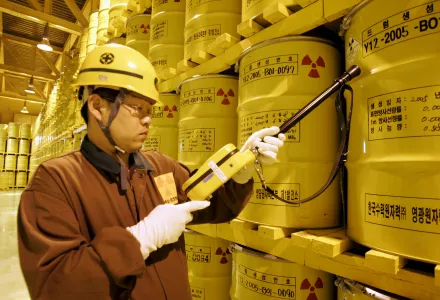
Summary
Contrary to conventional wisdom, states with nuclear energy programs are not more likely than those without them to seek or acquire nuclear weapons, for two reasons. Nuclear energy programs attract monitoring that can detect weapons programs, and they make potential proliferators more vulnerable to nonproliferation sanctions. The United States should therefore bolster nonproliferation intelligence-gathering efforts and enhance its capacity to inflict costly sanctions on proliferators.
Nicholas L. Miller, "Why Nuclear Energy Programs Rarely Lead to Proliferation," International Security, Vol. 42, No. 2 (Fall 2017), pp. 40–77, doi:10.1162/ISEC_a_00293.
The full text of this publication is available via International Security.





